The genius is not in how much Stanley Kubrick does in 2001: A Space Odyssey, but in how little. This is the work of an artist so sublimely confident that he doesn't include a single shot simply to keep our attention. He reduces each scene to its essence, and leaves it on screen long enough for us to contemplate it, to inhabit it in our imaginations. Alone among science-fiction movies, 2001 is not concerned with thrilling us, but with inspiring our awe.
Stanley Kubrick's 2001: A Space Odyssey is one of the greatest films of all time and it is the director's most profound and confounding exploration of humanity's relationship to technology, violence, sexuality and social structures. Kubrick's philosophical inquiries about the nature of humanity are explored to various degrees throughout all his films but in 2001: A Space Odyssey he explored his preoccupations most substantially by examining the place that humans occupy in the universe, asking some extremely weighty questions about the way humanity has evolved and suggesting what the next stage of our evolution will be like.
All reviews -
Movies (53)
2001: A Space Odyssey review
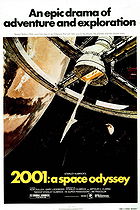 Posted : 11 years, 10 months ago on 17 July 2013 05:10
(A review of 2001: A Space Odyssey)
Posted : 11 years, 10 months ago on 17 July 2013 05:10
(A review of 2001: A Space Odyssey) 0 comments, Reply to this entry
0 comments, Reply to this entry
Seven Samurai review
 Posted : 11 years, 10 months ago on 17 July 2013 05:09
(A review of Seven Samurai)
Posted : 11 years, 10 months ago on 17 July 2013 05:09
(A review of Seven Samurai)One of the most thrilling movie epics of all time, The Seven Samurai tells the story of a sixteenth-century village whose desperate inhabitants hire the eponymous warriors to protect them from invading bandits. This three-hour ride from Akira Kurosawa-featuring legendary actors Toshiro Mifune and Takashi Shimura-seamlessly weaves philosophy and entertainment, delicate human emotions and relentless action, into a rich, evocative, and unforgettable tale of courage and hope.
Breathtaking, fastmoving, and overflowing with a delightfully self-mocking sense of humor, Akira Kurosawa's Seven Samurai is one of the most popular and influential Japanese films ever made... This rip-snorting action-adventure epic about a sixteenth-century farm community led by a band of samurai warriors defending itself against a marauding army, sparked not only an American remake, The Magnificent Seven (1960), but went on to influence a score of other westerns, particularly those of Sam Peckinpah and Sergio Leone.
Breathtaking, fastmoving, and overflowing with a delightfully self-mocking sense of humor, Akira Kurosawa's Seven Samurai is one of the most popular and influential Japanese films ever made... This rip-snorting action-adventure epic about a sixteenth-century farm community led by a band of samurai warriors defending itself against a marauding army, sparked not only an American remake, The Magnificent Seven (1960), but went on to influence a score of other westerns, particularly those of Sam Peckinpah and Sergio Leone.
 0 comments, Reply to this entry
0 comments, Reply to this entry
Blade Runner review
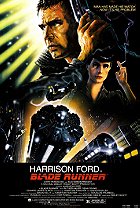 Posted : 11 years, 10 months ago on 17 July 2013 05:08
(A review of Blade Runner)
Posted : 11 years, 10 months ago on 17 July 2013 05:08
(A review of Blade Runner)The secret of Blade Runner is that Scott's fantastically baroque, future-shock imagery, all dark decay and techno-clutter, effectively becomes the story. As the layers of mood and detail settle in, the very process by which we watch the film - scanning those shimmering, claustrophobic frames for signs of life - turns into a running metaphor for what Blade Runner is about: a world in which humanity has been snuffed by "progress." This is perhaps the only science-fiction film that can be called transcendental.
 0 comments, Reply to this entry
0 comments, Reply to this entry
Fight Club review
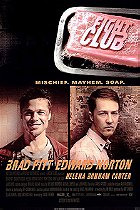 Posted : 11 years, 10 months ago on 17 July 2013 05:07
(A review of Fight Club)
Posted : 11 years, 10 months ago on 17 July 2013 05:07
(A review of Fight Club)Rarely has a film been so keyed into its time - in ways that, commercially, will be both advantageous and damaging - as "Fight Club." On one hand, the feature is the perfect reflection of the millennium malaise that pits pervasive nihilism against an urgent need for something to grasp onto; on the other, it caps off a period in which the media and Washington have never been so assiduous in pointing the finger at Hollywood over the impact of screen violence on society and on youth in particular. But despite certain hostility from some sectors, especially in the U.S., this bold, inventive, sustained adrenaline rush of a movie about a guru who advocates brutality and mayhem should excite and exhilarate young audiences everywhere in significant numbers.
 0 comments, Reply to this entry
0 comments, Reply to this entry
The Tree of Life review
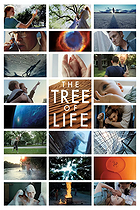 Posted : 11 years, 10 months ago on 17 July 2013 05:07
(A review of The Tree of Life)
Posted : 11 years, 10 months ago on 17 July 2013 05:07
(A review of The Tree of Life)Terrence Malick's The Tree of Life may be the closest the cinema has to its own Mass in B minor: it's gargantuan, encompassing, messy and bold. It's also exquisitely beautiful and personal on a level seemingly impossible for something that feels so vast. The Missa comprises movements under four distinct sections, and The Tree of Life incorporates the themes and styles of the director's four previous features into a film that feels infinite and minute, unwieldy yet perversely whole.
Malick's mad and magnificent film descends slowly, like some sort of prototypical spaceship: it's a cosmic-interior epic of vainglorious proportions, a rebuke to realism, a disavowal of irony and comedy, a meditation on memory, and a gasp of horror and awe at the mysterious inevitability of loving, and losing those we love... This is visionary cinema on an unashamedly huge scale: cinema that's thinking big. Malick makes an awful lot of other film-makers look timid and negligible by comparison.
Malick's mad and magnificent film descends slowly, like some sort of prototypical spaceship: it's a cosmic-interior epic of vainglorious proportions, a rebuke to realism, a disavowal of irony and comedy, a meditation on memory, and a gasp of horror and awe at the mysterious inevitability of loving, and losing those we love... This is visionary cinema on an unashamedly huge scale: cinema that's thinking big. Malick makes an awful lot of other film-makers look timid and negligible by comparison.
 0 comments, Reply to this entry
0 comments, Reply to this entry
Dr. Strangelove or: How I Learned to Stop Worrying and Love the Bomb review
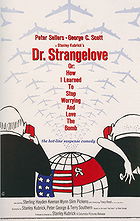 Posted : 11 years, 10 months ago on 17 July 2013 05:06
(A review of Dr. Strangelove or: How I Learned to Stop Worrying and Love the Bomb)
Posted : 11 years, 10 months ago on 17 July 2013 05:06
(A review of Dr. Strangelove or: How I Learned to Stop Worrying and Love the Bomb)Dr. Strangelove is, first and foremost, absolutely unflinching... Kubrick's precise use of camera angles, his uncanny sense of lighting, his punctuation with close-ups and occasionally with zoom shots, all galvanize the picture into macabre yet witty reality.
Dr. Strangelove applies to nuclear war, but its vicious examination of the nature of war itself gives it a timeless quality that survived the fall of the Soviet Union. It reduces war to the exploits of men whose inferiority complexes drive them to kill. Even when a nuke sets off the Russian doomsday machine and it spells the end of mankind, Turgidson and the Russian ambassador still bicker, and the ambassador sneaks off to take secret photos of the War Room. Why on Earth would he do this? Does he not understand that the notion of politics no longer has any meaning? It's just his job; who knows if Americans will agree to a peace settlement as a band of specially-chosen survivors flee to mine shafts, or vice-versa. Even at the end of civilization, man will look for any excuse to kill someone else.
Dr. Strangelove applies to nuclear war, but its vicious examination of the nature of war itself gives it a timeless quality that survived the fall of the Soviet Union. It reduces war to the exploits of men whose inferiority complexes drive them to kill. Even when a nuke sets off the Russian doomsday machine and it spells the end of mankind, Turgidson and the Russian ambassador still bicker, and the ambassador sneaks off to take secret photos of the War Room. Why on Earth would he do this? Does he not understand that the notion of politics no longer has any meaning? It's just his job; who knows if Americans will agree to a peace settlement as a band of specially-chosen survivors flee to mine shafts, or vice-versa. Even at the end of civilization, man will look for any excuse to kill someone else.
 0 comments, Reply to this entry
0 comments, Reply to this entry
Magnolia review
 Posted : 11 years, 10 months ago on 17 July 2013 05:05
(A review of Magnolia)
Posted : 11 years, 10 months ago on 17 July 2013 05:05
(A review of Magnolia)Writer/director P.T. Anderson proves not only that he is no one-hit wonder ("Boogie Nights") with his latest screen effort, but that he is a master of pithy dialogue and dynamic juxtaposition of character. In his third feature, the director brilliantly sets apart ten characters who support and oppose each other in revealing set-pieces, confirming the film's loosely optimistic leitmotif that "strange things happen all the time...Just as something so reliably surprising as the weather can modify people's behavior, "Magnolia" encompasses an inter-connective human bond that accepts reality's blind spots. Purity of intention, as the story suggests, is a happy accident that can hit everyone.
 0 comments, Reply to this entry
0 comments, Reply to this entry
The Empire Strikes Back review
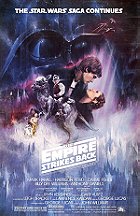 Posted : 11 years, 10 months ago on 17 July 2013 05:05
(A review of The Empire Strikes Back)
Posted : 11 years, 10 months ago on 17 July 2013 05:05
(A review of The Empire Strikes Back)The Empire Strikes Back is the best of three Star Wars films, and the most thought-provoking. After the space opera cheerfulness of the original film, this one plunges into darkness and even despair, and surrenders more completely to the underlying mystery of the story. It is because of the emotions stirred in Empire that the entire series takes on a mythic quality that resonates back to the first and ahead to the third. This is the heart.
 0 comments, Reply to this entry
0 comments, Reply to this entry
Eternal Sunshine of the Spotless Mind review
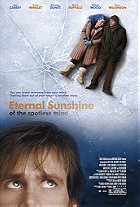 Posted : 11 years, 10 months ago on 17 July 2013 05:04
(A review of Eternal Sunshine of the Spotless Mind)
Posted : 11 years, 10 months ago on 17 July 2013 05:04
(A review of Eternal Sunshine of the Spotless Mind)Eternal Sunshine is one of those films I have trouble writing about, not only because I want everyone to experience it for themselves but because I worry that I'd only get lost in my platitudes. So perfect is every element -- the editing, the direction, the off-the-wall yet piercing script, the acting -- and so expertly and originally are they arranged that it stands on its own island. It boasts career-best performances from Carrey and Winslet, and at the very least all the other actors put in excellent work. Kaufman's script might lack the ambition of his later opus Synecdoche, New York and the wit of Adaptation, but he injects such a knowing sadness and hope into the film that he finally proves true the saying so many dismiss as pithy: 'twas better to have loved and lost than never loved at all.
 0 comments, Reply to this entry
0 comments, Reply to this entry
It's a Wonderful Life review
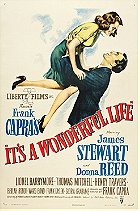 Posted : 11 years, 10 months ago on 17 July 2013 05:04
(A review of It's a Wonderful Life)
Posted : 11 years, 10 months ago on 17 July 2013 05:04
(A review of It's a Wonderful Life)Capra's Dickensian masterpiece... James Stewart is a vision of decency as the selfless guy George Bailey who finds himself deeply loved in the smalltown community he'd once dreamed of leaving: a redemptive discovery that follows his suicidal despair one snowy Christmas night. Every time I watch it, I am surprised afresh by how late in the story Clarence the angel appears, on his mission to show George how bad the world would have looked without him. The film is gripping enough simply with the telling of George's lifestory. A genuine American classic.
 0 comments, Reply to this entry
0 comments, Reply to this entry
 Login
Login
 Home
Home 26 Lists
26 Lists 53 Reviews
53 Reviews Collections
Collections